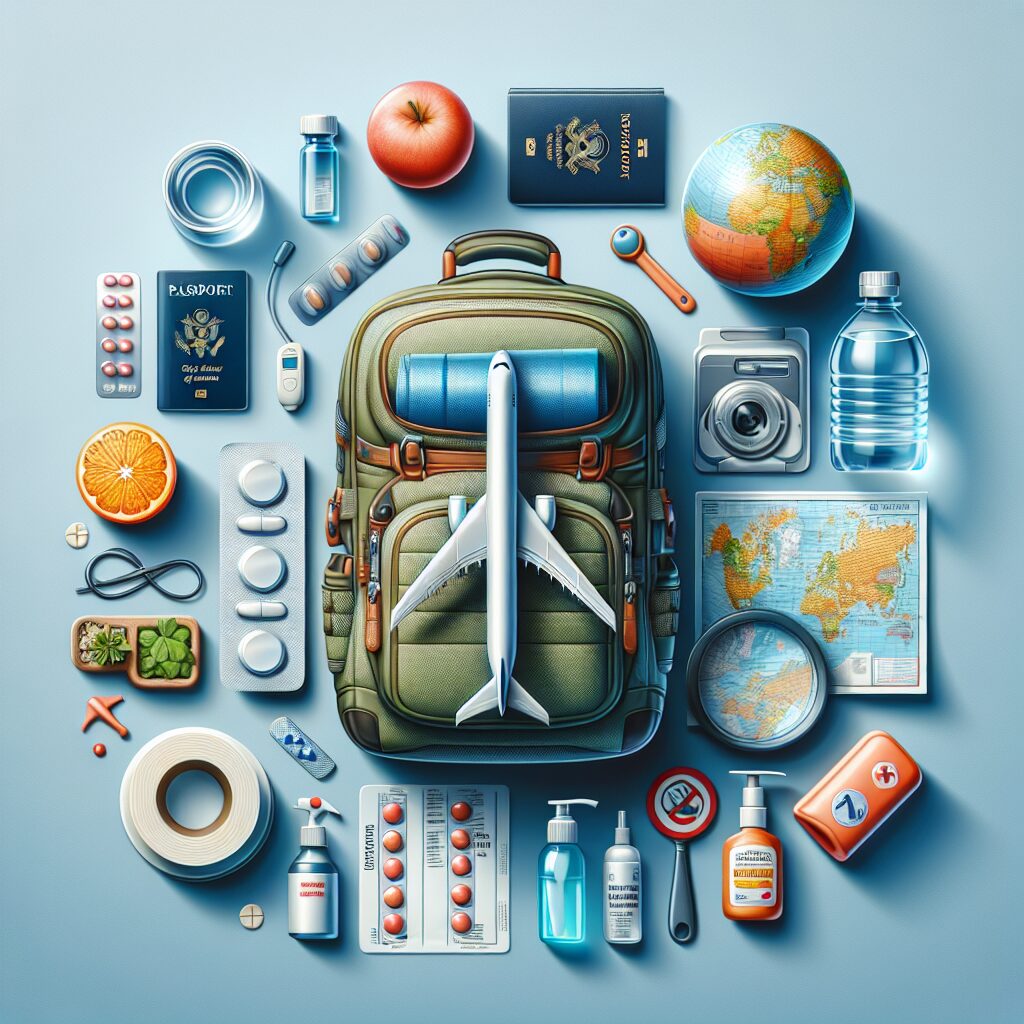Health and wellness on a cruise is an increasingly popular trend that caters to the growing demand for wellness-based travel experiences. According to experts, the cruise industry has been quick to adapt to this trend by offering a wide range of health and wellness programs onboard. One unique feature of health and wellness cruises is the inclusion of specialized fitness classes and wellness activities that are tailored to the needs of travelers. Additionally, these cruises often provide access to fitness centers, spa facilities, and nutritious dining options, ensuring that passengers can maintain their healthy lifestyle even while on vacation.
The impact of health and wellness cruises on travelers is significant. Not only do these cruises offer a rejuvenating experience, but they also provide an opportunity for individuals to prioritize their well-being and focus on self-care. The availability of fitness classes, wellness workshops, and spa treatments onboard allows passengers to engage in activities that promote physical fitness, mental well-being, and overall relaxation. Furthermore, the serene and tranquil environment provided by the cruise ship creates a perfect setting for individuals to disconnect from the stresses of everyday life and find inner peace.
Moving forward, this article will delve into the key takeaways associated with health and wellness on a cruise. It will explore the various types of wellness programs offered on cruises, highlight the benefits of engaging in these activities, and provide tips on how to make the most of a health and wellness cruise experience. By understanding the significance of health and wellness on cruises, readers will be able to make informed decisions and embark on a journey that nurtures both their mind and body. So, let’s dive into the world of health and wellness on a cruise and discover the secrets to achieving a vibrant and rejuvenated self while sailing the high seas.
Key Takeaways
1. Stay active on board: Cruise ships offer a variety of fitness facilities and activities to help maintain your health and wellness while enjoying your vacation. Take advantage of the onboard gym, participate in fitness classes, or even try out the sports deck for some outdoor exercise.
2. Watch your diet: Although cruises are known for their indulgent buffets and dining options, it is important to make mindful choices to maintain a healthy diet. Opt for fresh fruits and vegetables, choose grilled or baked options instead of fried foods, and be mindful of portion sizes.
3. Stay hydrated: With all the activities and exploring you’ll be doing on a cruise, it is crucial to stay hydrated. Carry a reusable water bottle with you and refill it regularly to ensure you’re getting enough fluids, especially in warm climates or while participating in physical activities.
4. Practice good hygiene: Cruise ships can be a breeding ground for germs, so it is essential to practice good hygiene to avoid getting sick. Regularly wash your hands with soap and water, use hand sanitizers, and avoid touching your face. Additionally, follow the ship’s guidelines for illness prevention, such as properly disposing of tissues and using the provided hand sanitizing stations.
5. Prioritize relaxation: While it’s important to stay active and maintain a healthy diet, don’t forget to prioritize relaxation and self-care. Take advantage of the spa facilities, enjoy downtime by the pool, and participate in onboard activities aimed at promoting relaxation and stress reduction. Remember, a cruise is also about rejuvenation and enjoyment.
How Can Health and Wellness on a Cruise Enhance Your Vacation Experience?
1. Fitness Facilities and Activities
When it comes to health and wellness on a cruise, most ships are equipped with state-of-the-art fitness facilities. These onboard gyms offer a wide range of equipment, from cardio machines to weights, allowing passengers to maintain their regular exercise routines while enjoying their vacation. Moreover, many cruise lines also offer fitness classes such as yoga, Pilates, and Zumba, allowing guests to engage in group exercises led by professional instructors.
2. Spa and Wellness Centers
Cruise ships often feature luxurious spa and wellness centers that cater to those seeking relaxation and rejuvenation. These facilities offer a wide range of treatments, including massages, facials, body wraps, and beauty services. Whether you’re looking to pamper yourself or relieve any stress and tension, indulging in spa treatments onboard is an excellent way to prioritize your health and wellness on a cruise.
3. Healthy Dining Options
Eating healthy doesn’t have to be a challenge while cruising. Many cruise lines nowadays offer a variety of healthy dining choices to suit different dietary preferences. From fresh salads and seafood to vegetarian and gluten-free options, you’ll find an abundance of nutritious meals onboard. Additionally, cruise ships often have dedicated health-conscious menus and restaurants, making it easier for you to maintain a balanced diet and make mindful food choices.
4. Outdoor Sports and Activities
For those who enjoy staying active outdoors, participating in the various sports and activities available on a cruise ship can contribute to your overall health and wellness. From rock climbing and zip-lining to swimming and scuba diving, each ship offers a range of options to engage in thrilling adventures while soaking up the sun and enjoying the fresh ocean air.
5. Health and Wellness Seminars
Cruise ships often host health and wellness seminars led by qualified professionals. These seminars cover a wide array of topics such as nutrition, stress management, meditation, and overall well-being. Attending these sessions can provide valuable insights and tips to help you improve your health and maintain a balanced lifestyle both during and after your cruise vacation.
6. Revitalizing Shore Excursions
Exploring the destinations you visit during your cruise can contribute significantly to your health and wellness journey. Many shore excursions offer opportunities for physical activities like hiking, biking, or even exclusive wellness experiences such as yoga on the beach. The combination of adventure and wellness empowers you to embrace new experiences while taking care of your body and mind.
What Are Some Tips for Maintaining Health and Wellness on a Cruise?
- Stay hydrated by drinking plenty of water throughout the day.
- Make use of onboard fitness facilities and participate in group exercise classes.
- Choose healthier options from the dining menu and be mindful of portion sizes.
- Take advantage of spa and wellness services to relax and rejuvenate.
- Engage in outdoor activities during shore excursions.
- Attend health and wellness seminars to gain knowledge and insights.
- Practice mindfulness and stress management techniques while onboard.
- Create a balance between indulging in treats and maintaining a healthy lifestyle.
- Avoid excessive alcohol consumption and prioritize quality sleep.
- Listen to your body, rest when needed, and don’t overexert yourself.
Frequently Asked Questions
1. What health measures are in place on cruises to ensure passenger safety?
Now more than ever, cruise lines prioritize the health and well-being of their passengers. Enhanced cleaning protocols, social distancing measures, mandatory health screenings, and the installation of advanced air filtration systems are some of the measures implemented to ensure a safe sailing experience.
2. Are there fitness facilities available on cruise ships?
Absolutely! Most modern cruise ships offer state-of-the-art fitness facilities, including fully equipped gyms, fitness classes, and recreational activities to cater to health-conscious travelers.
3. Can I follow a healthy diet while on a cruise?
Definitely! Cruise ships recognize the importance of catering to various dietary preferences and requirements. From healthy buffet options to specialized menus for vegetarian, vegan, gluten-free, or other dietary needs, cruise ships offer a wide array of choices to support your healthy eating goals.
4. Are there spa and wellness facilities available on board?
Yes, cruise ships often have luxurious spas offering a range of treatments like massages, facials, and body wraps to help passengers unwind and relax. Some ships even have dedicated wellness retreats that focus on holistic well-being.
5. Can I continue my fitness routine while on a cruise?
Absolutely! Cruise ships offer fitness classes such as yoga, pilates, spinning, and aerobics, allowing you to maintain your fitness routine even while at sea. Additionally, many ships have jogging tracks and sports courts for outdoor activities.
6. How can I stay healthy during an extended cruise?
During longer cruises, it’s essential to prioritize your health. Engage in regular physical activity, eat nutritious meals, stay hydrated, get enough rest, and follow basic hygiene practices such as regular handwashing to ensure a healthy and enjoyable cruise experience.
7. Are there medical facilities available on board?
Yes, cruise ships are equipped with medical facilities and staffed with qualified medical professionals who can attend to both minor issues and emergencies. However, it’s always advisable to have travel insurance that covers medical expenses in case of unexpected health situations.
8. Can I participate in wellness activities and workshops on a cruise?
Absolutely! Many cruise ships offer a variety of wellness activities, including yoga and meditation classes, fitness workshops, wellness seminars, and even holistic therapies like acupuncture. These activities provide opportunities to nurture your mind, body, and spirit.
9. Are there any age restrictions for participating in wellness activities?
Age restrictions for wellness activities can vary between cruise lines. While some activities may have age limitations, most ships strive to offer wellness programs suitable for different age groups. Make sure to check the specific guidelines provided by the cruise line you choose.
10. Can I use onboard facilities like pools and jacuzzis for relaxation?
Absolutely! Cruise ships typically have multiple pools, jacuzzis, and lounging areas where you can relax, unwind, and enjoy the soothing ocean breeze while benefiting from the health-promoting effects of water therapy.
Final Thoughts
Embarking on a cruise not only offers an incredible vacation experience but also provides ample opportunities to focus on your health and wellness. Cruise ships are designed to cater to a variety of wellness needs, offering everything from fitness facilities and healthy dining options to rejuvenating spa treatments and wellness activities.
Whether you seek relaxation, want to maintain your exercise routine, or wish to indulge in self-care, a cruise can be an excellent platform to prioritize your health while enjoying beautiful destinations. Take advantage of the array of wellness-focused amenities and make the most of your cruise experience for both rest and rejuvenation.




